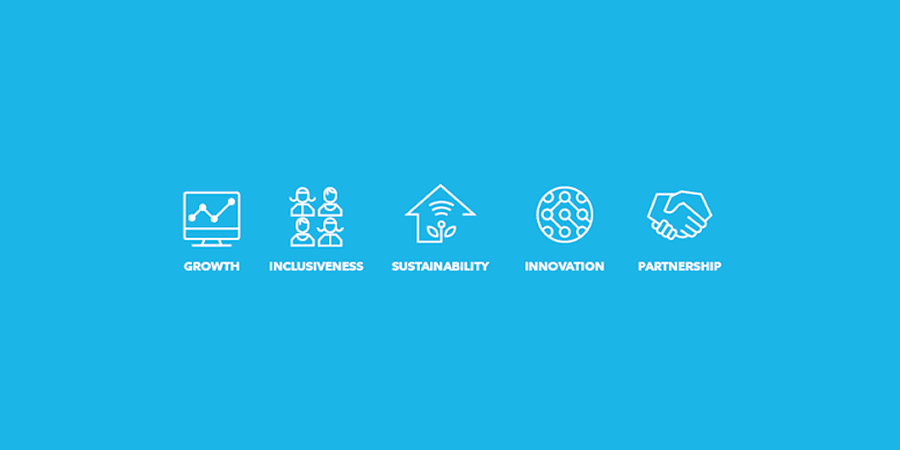The International Telecommunication Union (ITU) is focused on providing access to a better world. Along with this, many telecom companies are already working on their digital transformation journey.
If telcos want to fulfill their digital promise, they must have in mind strategic goals that lead their digital efforts and resources in the right places. Embarking on the Decade of Action — the final 10 years to deliver the promise of ITU’s Connect 2030 Agenda — it is important to have indicators that would measure the progress of each goal.
Goal 1: Growth
ITU is committed to fostering access and increased usage of telecommunications/ICT in support of the digital economy and society. Here are the targets for 2023:
- 65% of households worldwide should have Internet access
- 70% of individuals worldwide should be using the Internet
- Internet access should be 25% more affordable
- 50% increase in the number of broadband subscriptions
- 40% of countries have more than half of broadband subscriptions over 10 Mbit/s
Moreover, all countries are encouraged to adopt a digital agenda/strategy to allow at least 40% of the population to interact with government services online.
Goal 2: Inclusiveness
ITU aims to form an inclusive information society and enable the provision of broadband access for all by bridging the digital divide. In this way, no one will be left offline in both developing and developed countries. Some of the targets by 2023 include:
- 30% of households should have access to the Internet within least developed countries
- 60% of individuals should be using the Internet in developing countries
- The affordability gap should be reduced by 25%
- In developing countries, broadband services should cost no more than 3% of the average monthly income
- 96% of the world population should be covered by broadband services
- Improve the proportion of youth/adults with telecommunication/ICT skills by 40%
Gender equality in Internet usage and mobile phone ownership should also be achieved alongside accessible telecommunications/ICTs for persons with disabilities.
Goal 3: Sustainability
ITU focuses not only on enhancing the quality, reliability, and resilience of networks and systems but also on building confidence and security in the use of telecommunications/ICTs. By 2023:
- Improve cybersecurity preparedness of countries, with key capabilities such as the presence of strategy, national computer incident/emergency response teams, and legislation
- Increase the global e-waste recycling rate to 30%
- 50% of countries must have e-waste legislation
- Net telecommunication/ICT-enabled greenhouse gas reduction should increase by 30%
- There should be a National Emergency Telecommunication Plan in place for every country
Accordingly, telecommunications/ICTs have opportunities that must be seized yet minimizing the negative impact of undesired collaterals should also be prioritized.
Goal 4: Innovation
Today, innovation is being transformed by ICTs, big data, and artificial intelligence (AI), among other emerging technologies. Thus, innovation and learning can be either formal or informal while innovation hubs play a large role in establishing the modern digital economy. In line with this, countries show commitment to implementing policies and strategies for an ICT-centric innovation.
Goal 5: Partnership
Including new and diverse stakeholders to have different points of view is a better way to ensure that social change is harnessed for the good of everyone. ITU is committed to ensuring that partnerships and cooperation are more effective among different stakeholders to address the critical challenges of the digital era.
Citing an example, universal connectivity and increased control over commerce and services have fundamentally changed customer needs and behaviors. The task of providing the desired level of immediacy and agility is made more challenging for telecom companies and consolidation in many markets between organizations is needed. This clearly shows the importance of maintaining rapport and cooperation with one another.










